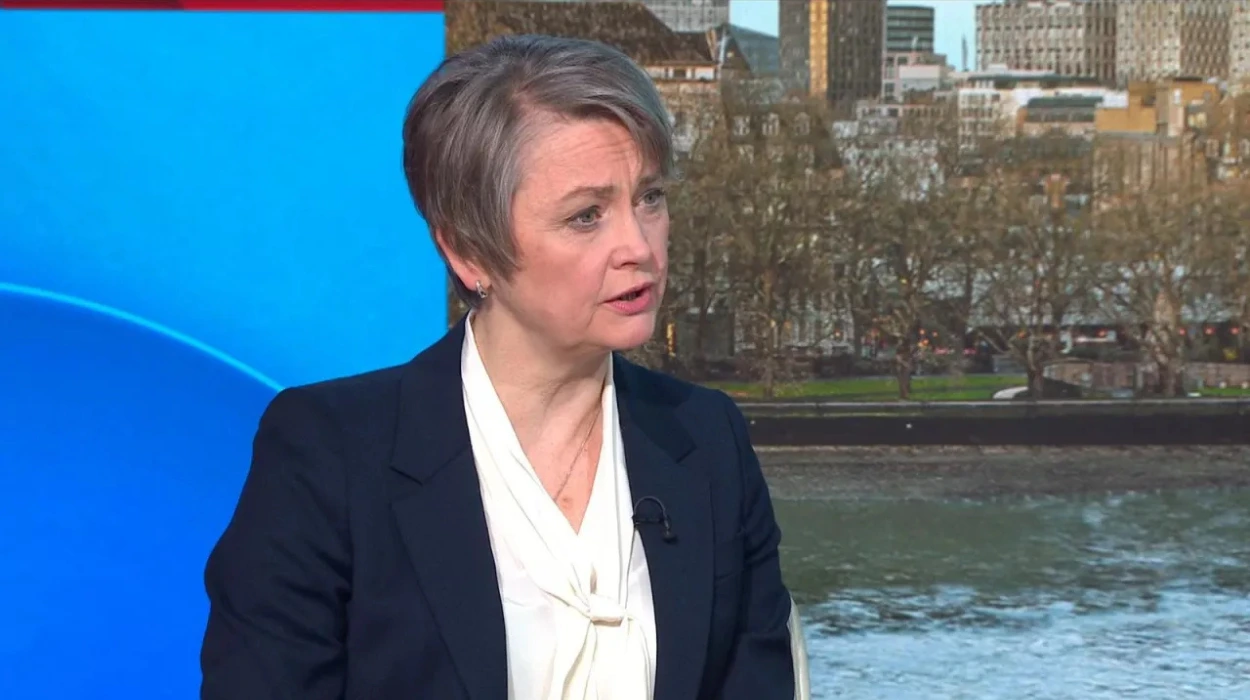UK (Parliament Politics Magazine) – Home Secretary Yvette Cooper slammed UK businesses for prioritizing overseas workers instead of local training, blaming it for rising net migration.
The British government has pledged to limit the hiring of foreign workers, pushing companies to invest in providing training to local talent.
What did Yvette Cooper say about the impact of overseas recruitment on net migration?
During an appearance on Sunday morning with Trevor Phillips, the Home Secretary condemned the “permissive free market policies,” arguing that they have contributed to a sharp increase in net migration, marking a fourfold rise in just four years.
She stated,
“A big driver… has been that overseas recruitment has shot up in a series of areas where training has fallen,
adding,
“This has led to a relaxed free market approach for businesses to just be able to recruit from overseas instead of training in the UK.”
Ms. Cooper stressed that additional measures must be regulated to ensure companies are pursuing recruitment in Britain.
As reported by Sky News, the Home Secretary said the government is working on drafting new policies to address sectors such as information technology, construction, and engineering, where foreign recruitment has been an issue for an extended period.
What does the new immigration bill mean for UK policies?
Yvette Cooper revealed that the recently announced Border Security Asylum and Immigration Bill will connect the migration system with organizations like Skills England and other entities that play an essential role in workforce planning.
She announced that the government will maintain the skilled migrant worker pay threshold at £38,700 and has eliminated the 20% salary discount for non-EU foreign workers, a policy implemented by the previous Tory government in 2019.
Ms. Cooper stated that restrictions will apply to both foreign graduate students and social care workers who wish to bring their families into the country.
Her remarks come in response to predictions from the Office for National Statistics, which forecast that the British population will surge by five million in the next 10 years, mainly due to migration.
How did shadow ministers respond to immigration policies?
Shadow trade and business secretary Andrew Griffiths, in conservation with Sir Trevor, stated,
“Well, we’ve been very clear. The Conservative Party is under new management. Immigration was too high. There were many, many, many, many failings in that immigration system in that period.”
Shadow Home Secretary Chris Philp accused the government of reversing provisions in the Illegal Migration Act 2023, which previously banned individuals arriving in small boats from seeking citizenship.
Mr. Philp argued that the government is reversing the Tories’ policies of treating individuals who decline age verification as adults.
How did Yvette Cooper respond to Tony Blair’s digital ID card proposal and trade stance?
When asked about former Prime Minister Tony Blair‘s recommendation that digital ID cards could ease immigration challenges, Ms Cooper declined to support the proposal.
She stated, “Non-UK citizens already have to have biometric resident permits, but they’re hardly ever checked.”
While addressing trade, she reaffirmed Labour’s firm stance that Britain will not re-enter the Customs Union, and European Single Market, and the restoration of freedom of movement.
The Home secretary confirmed, “We’ll look at ways to reduce friction, but we’re not returning to a Customs Union,” adding Sir Keir Starmer plans to strengthen the customs procedures between the UK and Europe.
Last week, the EU’s new trade chief, Maroš Šefčovič, suggested the UK join the Customs Union in a bid to reset ties with the EU.
What was the Home Office’s stance on the Illegal Migration Act?
A representative from the Home Office stated,
“The Illegal Migration Act has largely not been commenced (including this measure on age assessments); nor will it be under this government’s policy.”
He added that the government has set up strong processes to assess age in doubtful cases, including the National Age Assessment Board and scientific assessments from the Nationality and Borders Act 2022.


